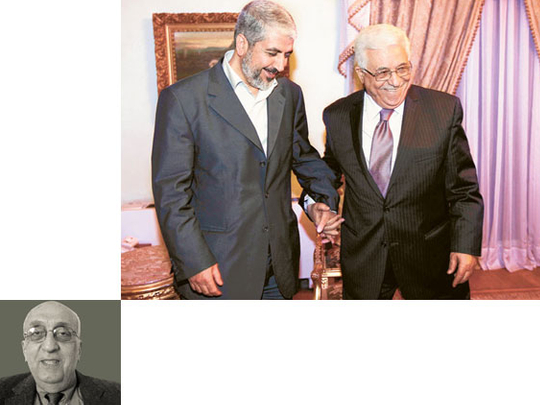
It is time to take stock of the Arab Spring, triggered by the self-immolation of Tunisian fruit-seller Mohammad Bu Azizi, this month last year. His act was in protest against the confiscation of his fruit stand, and his harassment and humiliation by municipal officials, but his death inflamed many Arabs, leading to the overthrow, so far, of autocratic rulers in Tunisia, Egypt, Libya and Yemen.
And much to the credit of the Arab uprisings, the event inspired similar protests such as Occupy Wall Street or the street demonstrations in Russia protesting the allegedly fraudulent elections which consolidated Prime Minister Vladimir Putin's 12-year grip on power.
I am a firm supporter of the Arab Spring. I believe that the revolutions will be remembered for being the most earth-shaking events in more than a generation and, hopefully, the dawn of freedom and democracy in the entire region. But in the past few weeks, there has been growing disappointment about the slow pace of change.
The inexperienced youth movements need additional international support. More significantly, Islamist groups have managed to co-opt most of the uprisings and sectarianism seems to be the rule of the day; just witness Iraq hardly a day after the US pulled out its troops from the forsaken country.
But the other side of the coin seems more promising. The rival Palestinian factions — Fateh and Hamas — are marching forth towards serious reconciliation, irrespective of the threats of the Obama administration or the Benjamin Netanyahu regime in Israel. The US and Israel have irresponsibly threatened economic reprisals against the Palestinian National Authority led by Mahmoud Abbas, which controls the West Bank, and Hamas, led by Khalid Mesha'al and run by Esmail Haniya, who is in charge of the besieged Gaza Strip and who is now on his first international tour of friendly states. (It is as if the US and Israel do not have extremist groups within their realms.)
After recent talks in Cairo, Abbas and Mesha'al — who incidentally has now lost the support of discredited Syrian President Bashar Al Assad — have negotiated an agreement which will allow Mesha'al to join a committee tasked with preparing for separate elections — in Gaza and the West Bank — for the Palestinian parliament in the new year. (In 2006, Hamas won a majority in the Palestinian parliament before the two factions split.)
This peaceful turnaround and Mesha'al's reported statement to Abbas that his group was "in favour of peaceful resistance and a truce in Gaza and the West Bank at this stage" should serve as an incentive to the Quartet to help in getting Israel and the Palestinians back to the negotiating table. But, surely, this cannot be achieved as long as Israel continues to expand colonies. It also depends on whether the Obama administration will twist Netanyahu's arm — an unlikely step with a presidential election in sight.
Nevertheless, Khalil Shikaki, a senior fellow at the Brandeis Crown Centre for Middle East Research and director of the Palestinian Centre for Policy and Survey Research, pointed out in a recent interview to the BrandeisNOW website that "the Arab Spring has sort of created a lot of noise that has, to a large extent, overwhelmed the Palestinian Question, but at the same time has created a new dynamic among Palestinians that could gradually transform the landscape of Palestinian politics".
He added, however, that the peace process is "in a stalemate because no one is pushing it forward" mainly because "without US leadership, without the US using leverage, very serious leverage, against both sides, I don't see, in the short run, any change on the ground, any return to serious and viable negotiations".
He said that "once the Palestinians begin to see US pressure in terms of moving the process forward rather in terms of serving Israeli interests, US economic and financial support becomes a very effective tool and US political support for the leadership and for the process will certainly become very important. At the moment, the Palestinian public doesn't see the US position as being balanced by any means".
George S. Hishmeh is a Washington-based columnist. He is a former editor in chief of The Daily Star.










